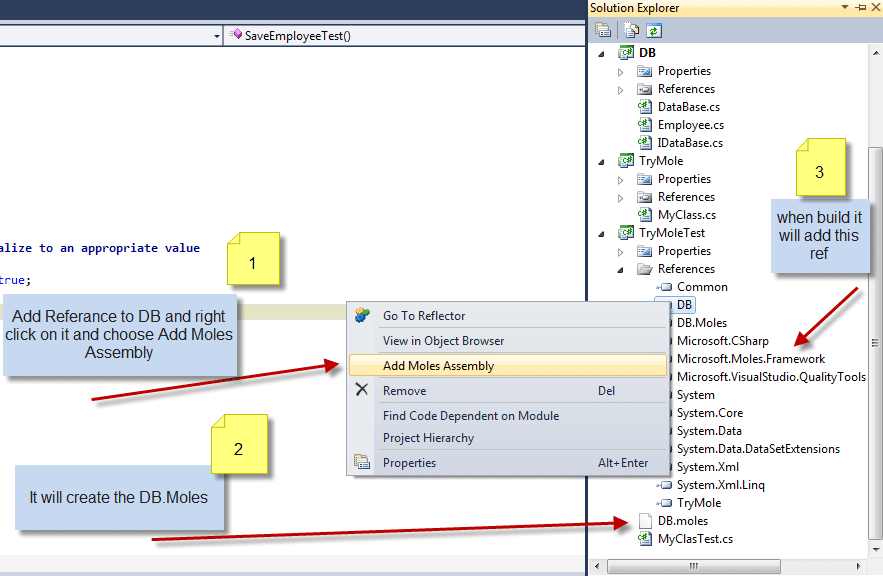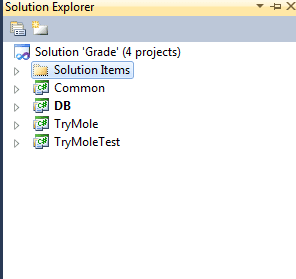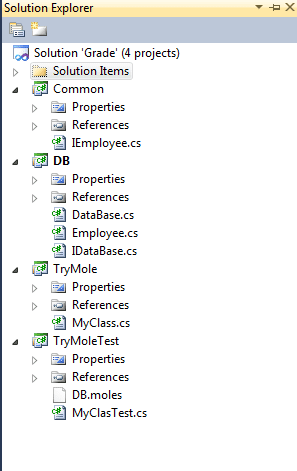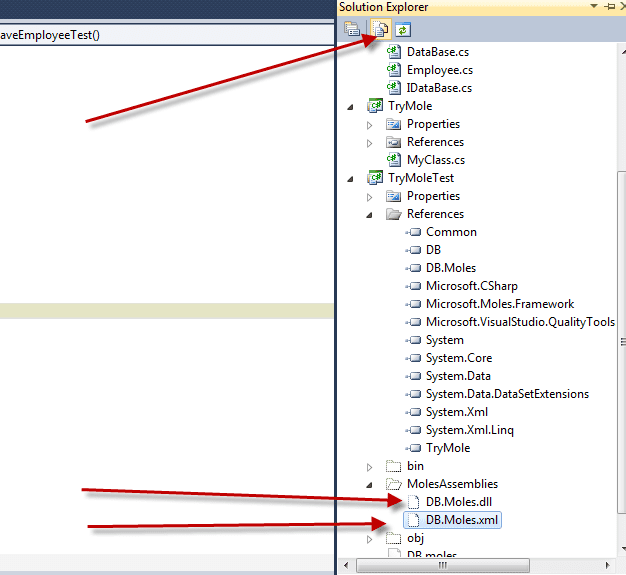Moles is one of the mocking frameworks for isolating dependencies and other layer's classes. I used to work with the Moq framework and it was very good, but with Moles you can do some things that I don't know if we can do with Moq. For example, you can isolate your code from .NET Framework code. How will you isolate DateTime.Now to return a specific value that you want? Remember that you don't have access to the definition of the .NET Framework classes, but with Moles, you can do that.
I created a solution from multiple projects so we can investigate Moles. The solution structure is as follows:
You will add a reference in the Test project to the DB project. Right-click on the DB reference and choose Add Mole Assembly. 
Start using it as follows:
DB Class
1
2
3
4
5
6
7
8
9
10
11
12
using Common;
namespace DB
{
public class DataBase : IDataBase
{
public bool Save(IEmployee e)
{
return true;
}
}
}
Employee Class
1
2
3
4
5
6
7
8
9
10
11
12
using System;
using Common;
namespace DB
{
public class Employee : IEmployee
{
public int Id { get; set; }
public string Name { get; set; }
public DateTime BirthDate { get; set; }
}
}
The method under Test
1
2
3
4
5
6
7
8
9
10
11
12
13
14
15
16
17
18
19
20
21
using System;
using Common;
using DB;
namespace TryMole
{
public class MyClass
{
public IDataBase DataBase { get; set; }
public void SaveEmployee(IEmployee e)
{
if (e == null) throw new ArgumentNullException();
if (e.Id <= 0) throw new ArgumentException();
if (e.Id > 5000) throw new ArgumentException();
DataBase.Save(e);
}
}
}
Test Method
1
2
3
4
5
6
7
8
9
10
11
12
[TestMethod()]
public void SaveEmployeeTest()
{
MyClass target = new MyClass(); // TODO: Initialize to an appropriate value
var database = new SIDataBase();
database.SaveIEmployee = (IEmployee emp) => true;
target.DataBase = database;
IEmployee e = new Employee { Id = 5 };
target.SaveEmployee(e);
}
I included also a project that isolate .NET Framework DateTime to return 1/1/2000 Y2K Bug To download the project and Y2K project click the following link download



